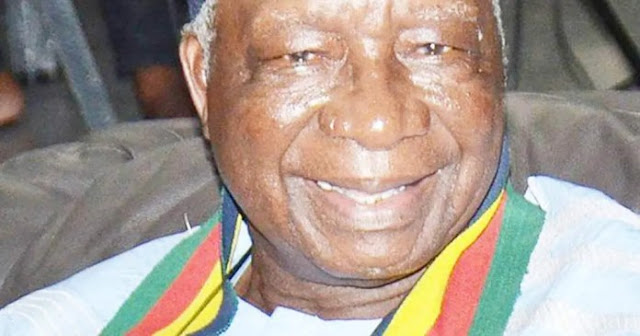By Mathew Ojo One of the General Officers Commanding (GOCs) in the Nigerian Army during the civil war, General Ibrahim Bata M. Harun...
By Mathew Ojo
One of the General Officers Commanding (GOCs) in the
Nigerian Army during the civil war, General Ibrahim Bata M. Haruna (retd), has
opened up on the alleged massacre of harmless civilians believed to be
sympathetic to Biafra in Asaba.
The incident which took place in October 1967, reportedly
saw to the gathering of young men by Nigerian troops and their alleged
subsequent mass killing.
But speaking on the ugly development in an interview with
Daily Trust, General Haruna, who later served as Nigeria’s information
minister, said he didn’t partake in the massacre and only heard of it after the
civil war.
The retired General said the International Criminal Court
(ICC) in Hague through United States’ professors recently contacted him to
explain what he knew about the incident.
Haruna, however, said since he was not involved in the
battle at Asaba, he could not really know what transpired.
His words : “When the Mid-West crisis erupted, I was in
Lagos. Apart from my role as an ordinance officer, I was also serving as a rear
commander to Adekunle’s team when it started; and subsequently , the
involvement of the warfronts.
” Again, I had to do the role of mobilising troops and
logistics from Lagos to support the force that was to be deployed to counter
this intrusion, which I did in Lagos.
” And, in fact, when we were threatened by the troops coming
to Ore, I had reinforcement from Kaduna and Lagos.
” It wasn’t long after that and Murtala was appointed as
commander and had to form the second division to advance the war.
“It was long after engagement in Asaba and subsequently in
Onitsha when I was appointed to take over from the acting GOC, Colonel Jalo.
” The success in Mid-West battle and crosses in Onitsha had
been recorded before I was posted; it was just a fighting force that was
arranged into the various attempts to cross into River Niger at Asaba. And
subsequently, we turned around to Awka.
” At that point, I took over to reorganise and stabilise the
division and ensured that the Mid-West was fully secured and the troops there
were organised and there were some disciplined and recognisable units. I was
with my headquarters in Onitsha, with the sector that was rear, to ensure that
the defence and security of Onitsha were consolidated.
“There was no massacre; if there was, I was not involved. I
told you that I took over the division after Onitsha had been ravaged. I never
heard of massacre until after the civil war.
” I went there as a General Officer Commanding (GOC). I took
over during the so- called massacre. It was in the process of taking over Asaba
and subsequent crossing of the troops to Onitsha.
” I heard all these stories after the war; my name was even
brandished. In fact, there was an occasion not long ago when some two
professors from the United States came to conduct enquiry into this matter
extensively, on behalf of the International Criminal Court and I told them that
I was not there. I never heard of it. And when I did, it was a very unfortunate
incident.
“As far as I am concerned, I was not there, so I cannot
vouch for what happened. But there was a battle there and people have expressed
their views about it, saying it was a massacre. All I can say is from reading
reports years after the civil war. I particularly got a little bit irritated
when people were mistaking me for Ibrahim Taiwo. I did not enter the civil war
until Onitsha was captured.
“My civil war front line engagement was when we were
consolidating on the Mid-West and Onitsha as an organised military formation.
So there was no real battle engagement except when we were in defence of
Onitsha. In the Mid-West, we were also consolidating and ensuring that the
political integrity of there was maintained.
“So I don’t know where this story about massacre started,
but I hear that as part of war efforts. We were in relationship with
sympathetic heroes to the Biafran troops, who were causing an alarming fear of
losing the front of the division in Onitsha and ensuring that they were not cut
off from the Mid-West and the rest of the command logistics chain to Lagos.
“We had a process for the war. Some saboteurs who were
sympathetic to the other side were rounded up and shot. I read in some books
that in the process there were people who were in an American Catholic school
or so, and those who were in the environs were making life really containable
for the division.
“I am talking about what I heard and read, I was not there,
I was not a witness. The troops were not in my command. Our orders and
operations were very clear – consolidating the military command in the Mid-West
and ensuring that we did not lose ground in Onitsha while the main thrust into
the Biafran area was going on.”














No comments